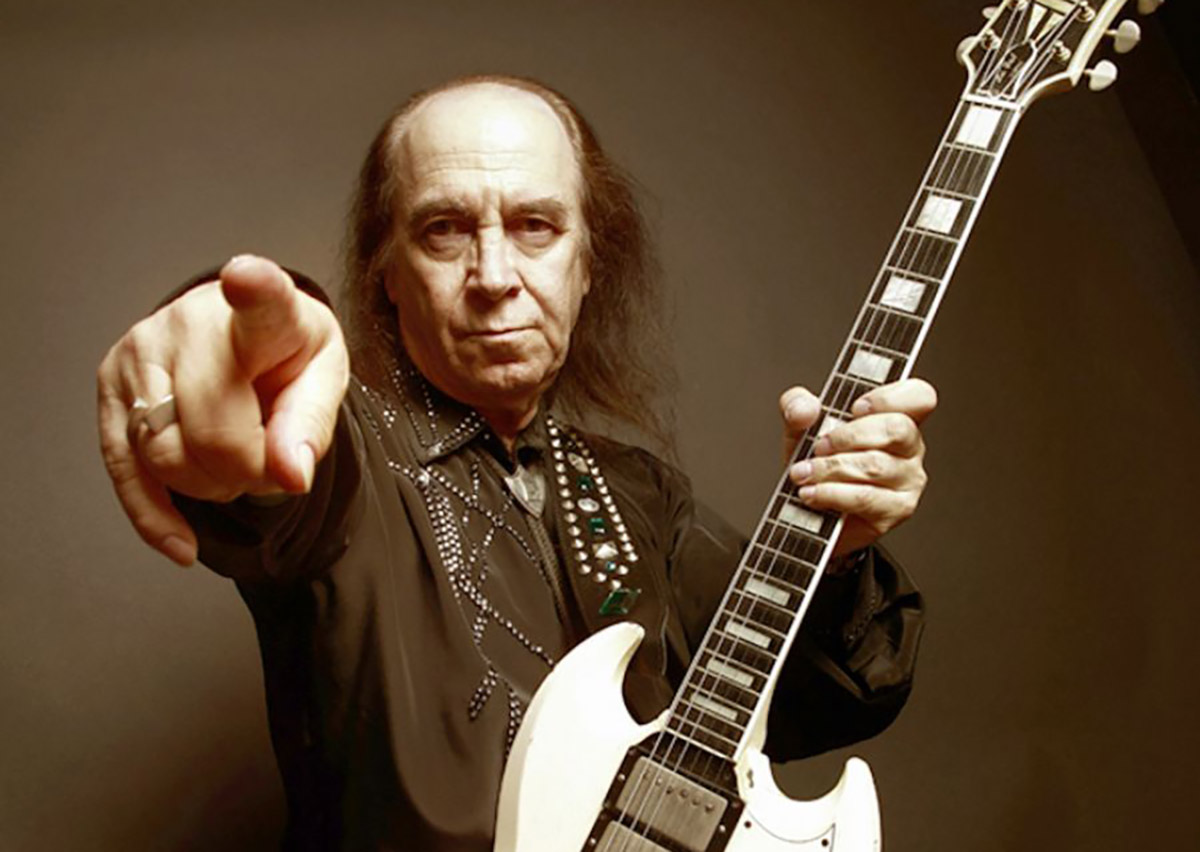He is one of the biggest names of Turkish Rock Music: Who is Erkin Koray?
Erkin Koray, alongside Orhan Gencebay, were the inventors of the electro baglama, the electric version of a traditional Turkish musical instrument related to the lute. Koray was active in the Turkish rock music scene since the late 1950s.

Erkin Koray, one of the biggest names of Turkish Rock Music, was born in Istanbul on June 24, 1941. The artist was introduced to music at an early age because his mother, Vecihe Koray, was a Classical Western Music piano teacher at the Istanbul Municipal Conservatory. After he started taking piano lessons from his mother at the age of 5, he was introduced to rock music while studying at the German High School. He also attended the conservatory while studying at school.
Erkin Koray (24 June 1941 – 7 August 2023) was a Turkish singer and guitarist who mainly played Anatolian rock. Koray was active in the Turkish rock music scene since the late 1950s. In 1967, he released his first single, "Anma Arkadaş". Koray, alongside Orhan Gencebay, were the inventors of the electro baglama, the electric version of a traditional Turkish musical instrument related to the lute.
On December 29, 1957, when he was 16 years old, the artist gave his first concert on the piano at Galatasaray High School, one of Turkey's elite schools. This concert constituted a big turning point in Erkin Koray's life. Because this concert was also the beginning of the artist's musical life. A month after his first concert, Koray gave concerts at Eminönü Community Center on January 25, 1958, and 20 days later at German and Austrian High Schools, and the concerts began to follow each other.
After these concerts, newspapers began to refer to him as the "King of Rock'n'Roll". In the early 1960s, Koray made a bar and club show with his band called "Erkin Koray and Ritmcileri", where he played guitar, sang, and rock'n'roll. In 1962, he released his first single, "Bir Eylül Akşamı"/It's So Long.
After releasing his 45, he did his military service as a guitarist and soloist in the Eskişehir Air Force Jazz Orchestra between 1963 and 1965. The artist, who continued his English studies and club programs for a while after returning from the military, met the officials of the Istanbul Record Company in one of these programs, and in 1967, he released his 45 called "Take the Girls to the Military", which made him a great celebrity in the country.
The artist, who also received reactions due to the length of his hair, founded the group "Underground Quartet" in 1970. Later, in order to get to know and examine Western music on site, he went to the Star Club in Hamburg, Germany, where the Beatles became famous and where the heart of music beats. Koray watched at least three British bands playing here every day and met many of them. Meanwhile, he also appeared on stage with a German band called Hiccups and later returned to Turkey, taking the bassist of that band, Bernhard Weber, with him, and this event marked the beginning of the Hard Rock era in Turkey.
The artist, who was on the agenda at that time with his hit songs, went to Europe again and met John Lennon, the legendary name of the Beatles, in France. The biggest advantage they had while making music with Koray's "Underground Quartet" was that they lived in a country further east than bands of the same style in the West, such as Pink Floyd and Grateful Dead.
Most European rock musicians of the period were interested in Eastern mysticism especially in India, and they were able to reflect this curiosity in their music. One of the most important examples of this was the Beatles' use of 'Sitar', first in their single titled "Norwegian Wood", and then in the song "Within You Without You" from their album "Sgt Pepper's Lonely Hearts Club Band".
Sitar was an instrument originating from the east, and the Beatles used this instrument in England; In Turkey, Orhan Gencebay, a musician very interested in Rock Music at that time, was using it.
After returning to Istanbul, he released his single titled "Yağmur" with "Supergroup". After the "Supergroup" disbanded due to financial difficulties, he released the single "Hor Görme Garibi" with the group called "Sweat", which he founded shortly after.
However, after the group "Ster" disbanded, Koray founded a group called 'Stop!' and left before he could continue with this group for a long time, and the group disbanded. In Europe, Alice Cooper and David Bowie started to appear on stage with colorful facial make-up, and Erkin Koray followed this trend and started to appear on stage with colorful facial make-up which attracted great attention.
After these studies, he went abroad for a long time. After returning from abroad, Koray continued his work again, and these works were such as "Şaşkın", "Arab Saçı", and "Fesuphanallah", which Turkey knows very well.
In addition to focusing on this type of work during this period, he also made rock works such as "Krallar", "Hadi Hadi Oradan", and even an LP called "Electronic Folk Songs", which consists of rock songs in itself. In 1977, he founded his last rock band, "Erkin Koray Tutkusu", and released a rock LP of the same name with this band, and then went abroad again for a long time.
The most important reason why Koray left Turkey was the political tensions in Turkey in the second half of the 70s and these tensions made the country make music. He decided to return home in the autumn of 1982, a year after he received the news of the September 12 Military Coup while he was abroad. The most famous work of Erkin Koray, who worked entirely solo for a long time after returning from abroad, is undoubted 'Çöpçüler'.
